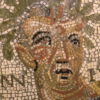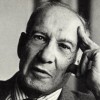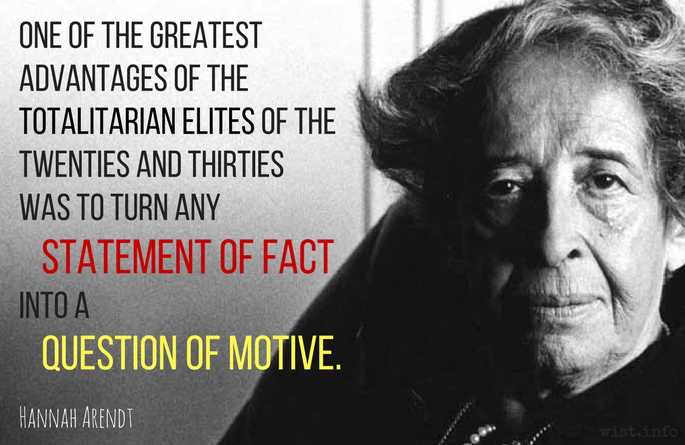You cannot be a slave of two masters; you will hate one and love the other; you will be loyal to one and despise the other. You cannot serve both God and money.
The Bible (The New Testament) (AD 1st - 2nd C) Christian sacred scripture
Luke 16:13 [GNT (1976)]
(Source)
Alternate translations:
No man can serve two masters: for either he will hate the one, and love the other; or else he will hold to the one, and despise the other. Ye cannot serve God and mammon.
[KJV (1611)]
No one can be the slave of two masters: he will either hate the first and love the second, or treat the first with respect and the second with scorn. You cannot be the slave both of God and of money.
[JB (1966)]
No one can be the slave of two masters: he will either hate the first and love the second, or be attached to the first and despise the second. You cannot be the slave both of God and of money.
[NJB (1985)]
No one can serve two masters. Either you will hate the one and love the other, or you will be loyal to the one and have contempt for the other. You cannot serve God and wealth.
[CEB (2011)]
No one can serve two masters, for a slave will either hate the one and love the other or be devoted to the one and despise the other. You cannot serve God and wealth.
[NRSV (2021 ed.)]
Quotations about:
loyalty
Note not all quotations have been tagged, so Search may find additional quotes on this topic.
You see my kind of loyalty was loyalty to one’s country, not to its institutions or its office-holders. The country is the real thing, the substantial thing, the eternal thing; it is the thing to watch over, and care for, and be loyal to; institutions are extraneous, they are its mere clothing, and clothing can wear out, become ragged, cease to be comfortable, cease to protect the body from winter, disease, and death.
Mark Twain (1835-1910) American writer [pseud. of Samuel Clemens]
A Connecticut Yankee in King Arthur’s Court, ch. 13 “Freemen!” (1889)
(Source)
BEATRICE: He wears his faith but
as the fashion of his hat; it ever changes with the
next block.William Shakespeare (1564-1616) English dramatist and poet
Much Ado About Nothing, Act 1, sc. 1, l. 73ff (1.1.73-75) (1598)
(Source)
FOOL: That sir which serves and seeks for gain,
And follows but for form,
Will pack when it begins to rain
And leave thee in the storm.
But I will tarry; the Fool will stay,
And let the wise man fly.
The knave turns fool that runs away;
The Fool, no knave, perdy.William Shakespeare (1564-1616) English dramatist and poet
King Lear, Act 2, sc. 4, l. 84ff (2.4.84-91) (1606)
(Source)
Perdie, perdy: "by God" (from the French par Dieu].
The surest safeguard against treason is a polity so just and equitable that no one will wish to betray it. Such an inspiration of men’s affection and men’s confidence is a more dependable guarantee of national security than the most searching catechism or the most diligent secret police. As we depart from this principle we confess our weakness, to our enemies as well as to ourselves. As we are faithful to it we realize our strength and show it to the world.
Whitney Griswold (1906–1963) American historian, educator [Alfred Whitney Griswold]
“Freedom, Security, and the University Tradition,” speech, Columbia University Bicentennial (1954-06-02)
(Source)
Reprinted in Griswold, In the University Tradition (1957).
A conscience which has been bought once will be bought twice.
Norbert Wiener (1894-1964) American mathematician and philosopher
The Human Use of Human Beings, ch. 7 (1954)
(Source)
Political loyalty, military obedience are excellent things, but they neither require nor do they justify the commission of patently wicked acts. There comes a point where a man must refuse to answer to his leader if he is also to answer to his conscience.
Hartley Shawcross (1902-2003) English barrister, politician, diplomat
Opening remarks, Nuremberg War Crimes Tribunal (4 Dec 1945)
(Source)
Shawcross was Attorney General of the UK and Chief Prosecutor for the UK at the tribunal
A time-honored concept of Anglo-Saxon justice declares that a man is innocent until proven guilty. I believe that in a democratic society a man is similarly loyal until proven disloyal. No testaments of faith, no protestations of affection for his native land, and no amount of signatures will prove a bloody thing — one way or the other — as to a man’s patriotism or lack thereof.
Rod Serling (1924-1975) American screenwriter, playwright, television producer, narrator
Speech, Moorpark College, Moorpark, California (3 Dec 1968)
(Source)
Serling had refused to sign a loyalty oath before speaking, giving up the fee for his appearance.
So when, in future times, men ask you to prove patriotism and loyalty and affection for your native land — remember that these things are not always equated with a willingness to die or to kill.
Rod Serling (1924-1975) American screenwriter, playwright, television producer, narrator
Commencement Address, Ithaca College, New York (13 May 1972)
(Source)
But I’d sooner have the depths of earth gape open,
and almighty Father hurl me down to Hades
with his bolt, to the pallid shades and inky night,
before I disobey my conscience or its laws.[Sed mihi vel tellus optem prius ima dehiscat
Vel pater omnipotens adigat me fulmine ad umbras,
Pallentis umbras Erebo noctemque profundam,
Ante, pudor, quam te violo aut tua iura resolvo.]Virgil (70-19 BC) Roman poet [b. Publius Vergilius Maro; also Vergil]
The Aeneid [Ænē̆is], Book 4, l. 24ff (4.24-29) [Dido] (29-19 BC) [tr. Bartsch (2021)]
(Source)
Dido, regarding her loyalty to her dead husband even as she falls in love with Aeneas.
(Source (Latin)). Alternate translations:
But first earth swallow me, or mighty Jove
Shall to the shades with dreadfull thunder smite,
Pale shades of Erebus and deepest night,
Ere shame I violate thee, or wrong thy rites.
[tr. Ogilby (1649)]
But first let yawning earth a passage rend,
And let me thro' the dark abyss descend;
First let avenging Jove, with flames from high,
Drive down this body to the nether sky,
Condemn'd with ghosts in endless night to lie,
Before I break the plighted faith I gave!
[tr. Dryden (1697)]
But sooner may earth from her lowest depths yawn for me, or the almighty Sire hurl me by his thunder to the shades, the pale shades of Erebus and deep night, than I violate thee, modesty, or break they laws.
[tr. Davidson/Buckley (1854)]
But first for me may Earth unseal
The horrors of her womb,
Or Jove with awful thunderpeal
Dismiss me into gloom,
The gloom of Orcus' dim twilight,
Or deeper still, primeval night,
Ere wound I thee, my woman's fame,
Or disallow thy sacred claim.
[tr. Conington (1866)]
But I would rather that the steadfast earth
Should yawn beneath me, from its lowest depths,
Or the Omnipotent Father hurl me down
With thunder to the shades, the pallid shades
Of Erebus, and night profound, ere thee,
O sacred shame, I violate, or break
Thy laws.
[tr. Cranch (1872)]
But rather, I pray, may earth first yawn deep for me, or the Lord omnipotent hurl me with his thunderbolt into gloom, the pallid gloom and profound night of Erebus, ere I soil thee, mine honour, or unloose thy laws.
[tr. Mackail (1885)]
And yet I pray the deeps of earth beneath my feet may yawn,
I pray the Father send me down bolt-smitten to the shades,
The pallid shades of Erebus, the night that never fades,
Before, O Shame, I shame thy face, or loose what thou hast tied!
[tr. Morris (1900)]
But O! gape Earth, or may the Sire of might
Hurl me with lightning to the Shades amain,
Pale shades of Erebus and abysmal Night,
Ere, wifely modesty, thy name I stain,
Or dare thy sacred precepts to profane.
[tr. Taylor (1907), st. 4, l. 28ff]
But may the earth gape open where I tread,
and may almighty Jove with thunder-scourge
hurl me to Erebus' abysmal shade,
to pallid ghosts and midnight fathomless,
before, O Chastity! I shall offend
thy holy power, or cast thy bonds away!
[tr. Williams (1910)]
But rather, I would pray, may earth yawn for me to its depths, or may the Almighty Father hurl me with his bolt to the shades -- the pale shades and abysmal night of Erebus -- before, O Shame, I violate thee or break thy laws!
[tr. Fairclough (1916)]
But I pray, rather,
That earth engulf me, lightning strike me down
To the pale shades and everlasting night
Before I break the laws of decency.
[tr. Humphries (1951)]
But no, I would rather the earth should open and swallow me
Or the Father of heaven strike me with lightning down to the shades --
The pale shades and deep night of the Underworld -- before
I violate or deny pure widowhood's claim upon me.
[tr. Day Lewis (1952)]
But I should call upon the earth to gape
and close above me, or on the almighty
Father to take his thunderbolt, to hurl
me down to the shades, the pallid shadows
and deepest night of Erebus, before
I'd violate you, Shame, or break your laws!
[tr. Mandelbaum (1971)]
But O chaste life, before I break your laws,
I pray that Earth may open, gape for me
Down to its depth, or the omnipotent
With one stroke blast me to the shades, pale shades
Of Erebus and the deep world of night!
[tr. Fitzgerald (1981)]
But I would pray that the earth open to its depths and swallow me or that the All-powerful Father of the Gods blast me with his thunderbolt and hurl me down to the pale shades of Erebus and its bottomless night before I go against my conscience and rescind its laws.
[tr. West (1990)]
But I pray rather that earth might gape wide for me, to its depths,
or the all-powerful father hurl me with his lightning-bolt
down to the shadows, to the pale ghosts, and deepest night
of Erebus, before I violate you, Honour, or break your laws.
[tr. Kline (2002)]
But may the earth gape open and swallow me,
May the Father Almighty blast me
Down to the shades of Erebus below
And Night profound, before I violate you,
O Modesty, and break your vows.
[tr. Lombardo (2005)]
I pray that the earth gape deep enough to take me down
or the almighty Father blast me with one bolt to the shades,
the pale, glimmering shades in hell, the pit of night,
before I dishonor you, my conscience, break your laws.
[tr. Fagles (2006), l. 30ff]
A nation which, in the name of loyalty or of patriotism or of a sincere and high-sounding idea, discourages criticism and dissent, and puts a premium on acquiescence and conformity, is headed for disaster.
It is easier to say what loyalty is not than what it is. It is not conformity. It is not passive acquiescence in the status quo. It is not preference for everything American over everything foreign. It is not an ostrich-like ignorance of other countries and other institutions. It is not the indulgence in ceremony — a flag salute, an oath of allegiance, a fervid verbal declaration. It is not a particular creed, a particular version of history, a particular body of economic practices, a particular philosophy.
Loyalty … is a realization that America was born of revolt, flourished in dissent, became great through experimentation.
Who are those who are really disloyal? Those who inflame racial hatreds, who sow religious and class dissensions. Those who subvert the Constitution by violating the freedom of the ballot box. Those who make a mockery of majority rule by the use of the filibuster. Those who impair democracy by denying equal educational facilities. Those who frustrate justice by lynch law or by making a farce of jury trials. Those who deny freedom of speech and of the press and of assembly. Those who press for special favors against the interest of the commonwealth. Those who regard public office as a source of private gain. Those who would exalt the military over the civil. Those who for selfish and private purposes stir up national antagonisms and expose the world to the ruin of war.
Who among American heroes could meet their tests, who would be cleared by their committees? Not Washington, who was a rebel. Not Jefferson, who wrote that all men are created equal and whose motto was “rebellion to tyrants is obedience to God.” Not Garrison, who publicly burned the Constitution; or Wendell Phillips, who spoke for the underprivileged everywhere and counted himself a philosophical anarchist; not Seward of the Higher Law or Sumner of racial equality. Not Lincoln, who admonished us to have malice toward none, charity for all; or Wilson, who warned that our flag was “a flag of liberty of opinion as well as of political liberty”; or Justice Holmes, who said that our Constitution is an experiment and that while that experiment is being made “we should be eternally vigilant against attempts to check the expression of opinions that we loathe and believe to be fraught with death.”
What is the new loyalty? It is, above all, conformity. It is the uncritical and unquestioning acceptance of America as it is — the political institutions, the social relationships, the economic practices. It rejects inquiry into the race question or socialized medicine, or public housing, or into the wisdom or validity of our foreign policy. It regards as particularly heinous any challenge to what is called “the system of private enterprise,” identifying that system with Americanism. It abandons evolution, repudiates the once popular concept of progress, and regards America as a finished product, perfect and complete.
For justice knows few so completely dedicated to her. Many praise her, but not for themselves; others follow her until danger threatens; and then the false deny her, and the political betray her.
[Que tiene pocos finos la entereza. Celébranla muchos, mas no por su casa; síguenla otros hasta el peligro; en él los falsos la niegan, los políticos la dissimulan.]
Baltasar Gracián y Morales (1601-1658) Spanish Jesuit priest, writer, philosopher
The Art of Worldly Wisdom [Oráculo Manual y Arte de Prudencia], § 29 (1647) [tr. Fischer (1937)]
(Source)
(Source (Spanish)). Alternate translations:
Sure, [Reason] has not many Adherents. There are many who publish her praises, but will not admit her into their Houses. Others follow her as far as danger will permit; but when they come to that, some like false Friends deny her; and the rest, like Politicians, pretend they know her not.
[Flesher ed. (1685)]
What a scanty following has rectitude! Many praise it indeed, but -- for others. Others follow it till danger threatens; then the false deny it, the politic conceal it.
[tr. Jacobs (1892)]
Few are devoted to righteousness. Many celebrate her, but few visit her. Some follow her until things get dangerous. In danger, the false disown her and politicians cunningly disguise her.
[tr. Maurer (1992)]
If political loyalty is signaled by believing a true story, anyone can fake it. But believing ridiculous and outlandish stories exacts greater cost, and is therefore a better signal of loyalty. If you believe your leader only when he or she tells the truth, what does that prove? In contrast, if you believe your leader even when he or she builds castles in the air, that’s loyalty! Shrewd leaders might sometimes deliberately say nonsensical things as a way to distinguish reliable devotees from fair-weather supporters.
Yuval Noah Harari (b. 1976) Israeli public intellectual, historian, academic, writer [יובל נח הררי]
“Why Fiction Trumps Truth,” New York Times (24 May 2019)
(Source)
By Hercules, I prefer to be wrong with Plato … than to be right with those idiots.
[Errare mehercule malo cum Platone … quam cum istis vera sentire.]
Marcus Tullius Cicero (106-43 BC) Roman orator, statesman, philosopher
Tusculan Disputations [Tusculanae Disputationes], Book 1, ch. 17 (1.17) / sec. 39 [Auditor] (45 BC) [tr. @sententiq (2012)]
(Source)
Original Latin. Alternate translations:
- "Had rather, I assure you, be mistaken with Plato ... than to be of their opinion in the right." [tr. Wase (1643)]
- "I had rather, so help me Hercules, be mistaken with Plato ... than be in the right with them." [tr. Main (1824)]
- "I would rather err, by Hercules, with Plato ... than to embrace the truth with those others." [tr. Otis (1839)]
- "I had rather, so help me Hercules! be mistaken with Plato ... than be in the right with those others." [tr. Yonge (1853)]
- "I would rather, by Hercules, err with Plato ... than hold the truth with those other philosophers." [tr. Peabody (1886)]
- "I would rather, so help me Hercules! be wrong with Plato ... than be right with all the rest of them." [tr. Black (1889)]
- "Believe me, I'd rather go wrong in the company of Plato ... than hold the right views with his opponents." [tr. Davie (2017)]
Man the master, ingenious past all measure,
past all dreams the skills within his grasp —
he forges on, now to destruction,
now again to greatness. When he weaves in
the laws of the land, and the justice of the gods
that bind his oaths together
he and his city rise high —
but the city casts out
that man who weds himself to inhumanity
thanks to reckless daring. Never share my hearth,
never think my thoughts, whoever does such things.[σοφόν τι τὸ μηχανόεν τέχνας ὑπὲρ ἐλπίδ᾽ ἔχων
τοτὲ μὲν κακόν, ἄλλοτ᾽ ἐπ᾽ ἐσθλὸν ἕρπει,
νόμους γεραίρων χθονὸς θεῶν τ᾽ ἔνορκον δίκαν,
370ὑψίπολις: ἄπολις ὅτῳ τὸ μὴ καλὸν
ξύνεστι τόλμας χάριν. μήτ᾽ ἐμοὶ παρέστιος
γένοιτο μήτ᾽ ἴσον φρονῶν ὃς τάδ᾽ ἔρδει.]Sophocles (496-406 BC) Greek tragic playwright
Antigone, l. 365ff, Stasimon 1, Antistrophe 2 [Chorus] (441 BC) [tr. Fagles (1982)]
(Source)
Original Greek. Alternate translations:
Wise in his craft of art
Beyond the bounds of expectation,
The while to good he goes, the while to evil.
Honouring his country's laws and heaven's oathbound right,
High is he in the state!
But cityless is he with whom inherent baseness dwells;
When boldness dares so much,
No seat by me at festive hearth,
No seat by me in sect or party,
For him that sinneth!
[tr. Donaldson (1848)]
Passing the wildest flight thought are the cunning and skill,
That guide man now to the light, but now to counsels of ill.
If he honors the laws of the land, and reveres the Gods of the State
Proudly his city shall stand; but a cityless outcast I rate
Whoso bold in his pride from the path of right doth depart;
Ne'er may I sit by his side, or share the thoughts of his heart.
[tr. Storr (1859)]
Inventive beyond wildest hope, endowed with boundless skill,
One while he moves toward evil, and one while toward good,
According as he loves his land and fears the Gods above.
Weaving the laws into his life and steadfast oath of Heaven,
High in the State he moves but outcast he,
Who hugs dishonour to his heart and follows paths of crime
Ne'er may he come beneath my roof, nor think like thoughts with me.v [tr. Campbell (1873)]
Possessing resourceful skill, a subtlety beyond expectation he moves now to evil, now to good. When he honors the laws of the land and the justice of the gods to which he is bound by oath, his city prospers. But banned from his city is he who, thanks to his rashness, couples with disgrace. Never may he share my home, never think my thoughts, who does these things!
[tr. Jebb (1891)]
Cunning beyond fancy's dream is the fertile skill which brings him, now to evil, now to good. When he honours the laws of the land, and that justice which he hath sworn by the gods to uphold, proudly stands his city: no city hath he who, for his rashness, dwells with sin. Never may he share my hearth, never think my thoughts, who doth these things!
[tr. Jebb (1917)]
O clear intelligence, force beyond all measure!
O fate of man, working both good and evil!
When the laws are kept, how proudly his city stands!
When the laws are broken, what of his city then?
Never may the anarchic man find rest at my hearth,
Never be it said that my thoughts are his thoughts.
[tr. Fitts/Fitzgerald (1939), l. 285ff]
O wondrous subtlety of man, that draws
To good or evil ways! Great honor is given
And power to him who upholdeth his country’s laws
And the justice of heaven.
But he that, too rashly daring, walks in sin
In solitary pride to his life’s end.
At door of mine shall never enter in
To call me friend.
[tr. Watling (1947)]
Clever beyond all dreams
the inventive crat that he has
which may drive him one time or another to well or ill.
When he honors the laws of the land and the gods' sworn right
high indeed is his city; but stateless is the man
who dares to dwell with dishonor. Not by my fire,
never to share my thoughts, who does these things.
[tr. Wyckoff (1954)]
Surpassing belief, the device and
Cunning that Man has attained,
And it bringeth him now to evil, now to good.
If he observe Law, and tread
The righteous path God ordained,
Honored is he; dishonored, the man whose reckless heart
Shall make him join hands with sin:
May I not think like him,
Nor may such an impious man
Dwell in my house.
[tr. Kitto (1962)]
He has cunning contrivance,
Skill surpassing hope,
And so he slithers into wickedness sometimes,
Other times into doing good.
If he honors the law of the land
And the oath-bound justice of the gods,
Then his city shall stand high.
But no city for him if he turns shameless out of daring.
He will be no guest of mine,
He will never share my thoughts,
If he goes wrong.
[tr. Woodruff (2001)]
Possessing a means of invention, a skillfulness beyond expectation,
now toward evil he moves, now toward good.
By integrating the laws of the earth
and justice under oath sworn to the gods,
he is lofty of city. Citiless is the man with whom ignobility
because of his daring dwells.
May he never reside at my hearth
or think like me,
whoever does such things.
[tr. Tyrell/Bennett (2002)]
And though his wisdom is great in discovery -- wisdom beyond all imaginings!
Yet one minute it turns to ill the next again to good.
But whoever honours the laws of his land and his sworn oaths to the gods, he’ll bring glory to his city.
The arrogant man, on the other hand, the man who strays from the righteous path is lost to his city. Let that man never stay under the same roof as me or even be acquainted by me!
[tr. Theodoridis (2004)]
The qualities of his inventive skills
bring arts beyond his dreams and lead him on,
sometimes to evil and sometimes to good.
If he treats his country’s laws with due respect
and honours justice by swearing on the gods,
he wins high honours in his city.
But when he grows bold and turns to evil,
then he has no city. A man like that --
let him not share my home or know my mind.
[tr. Johnston (2005), l. 415ff]
With clever creativity beyond expectation, he moves now to evil, now to good. The one who observes the laws of the land and justice, our compat with the gods, is honored in the city, but there is no city for one who participates in what is wrong for the sake of daring. Let him not share my hearth, nor let me share his ideas who had done these things.
[tr. Thomas (2005)]
We may then lay down this rule of friendship — neither ask nor consent to do what is wrong. For the plea “for friendship’s sake” is a discreditable one, and not to be admitted for a moment. This rule holds good for all wrong-doing, but more especially in such as involves disloyalty to the republic.
[Haec igitur lex in amicitia sanciatur, ut neque rogemus res turpes nec faciamus rogati. Turpis enim excusatio est et minime accipienda cum in ceteris peccatis, tum si quis contra rem publicam se amici causa fecisse fateatur.]
Marcus Tullius Cicero (106-43 BC) Roman orator, statesman, philosopher
Laelius De Amicitia [Laelius on Friendship], ch. 12 / sec. 40 (44 BC) [tr. Shuckburgh (1909)]
(Source)
Original Latin. Alternate translations:
Let this law therefore be established in friendship, viz., that we should neither ask things that are improper, nor grant them when asked; for it is a disgraceful apology, and by no means to be admitted, as well in the case of other offenses, as when any one avows he has acted against the state for the sake of a friend.
[tr. Edmonds (1871)]
As to friendship, then, let this law be enacted, that we neither ask of a friend what is wrong, nor do what is wrong at a friend’s request. The plea that it was for a friend’s sake is a base apology, -- one that should never be admitted with regard to other forms of guilt, and certainly not as to crimes against the State.
[tr. Peabody (1887)]
Therefore let this law be established in friendship: neither ask dishonourable things, nor do them, if asked. And dishonourable it certainly is, and not to be allowed, for anyone to plead in defence of sins in general and especially of those against the State, that he committed them for the sake of a friend.
[tr. Falconer (1923)]
Therefore, let this law be established for friendship: that we should neither ask for foul things nor fulfill requests for them. For this is a foul excuse and ought not be accepted for any crime, but especially not if someone is shown to have placed themselves against the Republic for the sake of a friend.
[Source]
Fine, Haemon.
That’s how you ought to feel within your heart,
subordinate to your father’s will in every way.
That’s what a man prays for: to produce good sons —
a household full of them, dutiful and attentive,
so they can pay his enemy back with interest
and match the respect their father shows his friend.
But the man who rears a brood of useless children,
what has he brought into the world, I ask you?
Nothing but trouble for himself, and mockery
from his enemies laughing in his face.[οὕτω γάρ, ὦ παῖ, χρὴ διὰ στέρνων ἔχειν,
γνώμης πατρῴας πάντ᾽ ὄπισθεν ἑστάναι.
τούτου γὰρ οὕνεκ᾽ ἄνδρες εὔχονται γονὰς
κατηκόους φύσαντες ἐν δόμοις ἔχειν,
ὡς καὶ τὸν ἐχθρὸν ἀνταμύνωνται κακοῖς
καὶ τὸν φίλον τιμῶσιν ἐξ ἴσου πατρί.
ὅστις δ᾽ ἀνωφέλητα φιτύει τέκνα,
τί τόνδ᾽ ἂν εἴποις ἄλλο πλὴν αὑτῷ πόνους
φῦσαι, πολὺν δὲ τοῖσιν ἐχθροῖσιν γέλων]Sophocles (496-406 BC) Greek tragic playwright
Antigone, l. 639 ff (Act 3) [Creon] (441 BC) [tr. Fagles (1982), l. 712ff]
(Source)
Original Greek. Alt. trans.:
Well spoken: so right-minded sons should feel,
In all deferring to a father's will.
For 'tis the hope of parents they may rear
A brood of sons submissive, keen to avenge
Their father's wrongs, and count his friends their own.
But who begets unprofitable sons,
He verily breeds trouble for himself,
And for his foes much laughter.
[tr. Storr (1859)]
That, O my son! should be thy constant mind,
In all to bend thee to thy father's will.
Therefore men pray to have around their hearths
Obedient offspring, to requite their foes
With harm, and honour whom their father loves;
But he whose issue proves unprofitable,
Begets what else but sorrow to himself
And store of laughter to his enemies?
[tr. Campbell (1873)]
Yes, my son, this is the spirit you should maintain in your heart -- to stand behind your father's will in all things. It is for this that men pray: to sire and raise in their homes children who are obedient, that they may requite their father's enemy with evil and honor his friend, just as their father does. But the man who begets unhelpful children -- what would you say that he has sown except miseries for himself and abundant exultation for his enemies?
[tr. Jebb (1891), l. 640ff]
Yea, this, my son, should be thy heart's fixed law, -- in all things to obey thy father's will. 'Tis for this that men pray to see dutiful children grow up around them in their homes, -- that such may requite their father's foe with evil, and honour, as their father doth, his friend. But he who begets unprofitable children -- what shall we say that he hath sown, but troubles for himself, and much triumph for his foes?
[tr. Jebb (1917)]
Good. That is the way to behave: subordinate
Everything else, my son, to your father’s will
This is what a man prays for, that he may get
Sons attentive and dutiful in his house,
Each one hating his father’s enemies,
Honoring his father’s friends. But if his sons
Fail him, if they turn out unprofitably,
What has he fathered but trouble for himself
And amusement for the malicious?
[tr. Fitts/Fitzgerald (1939), l. 503ff]
Rightly said.
Your father’s will should have your heart’s first place.
Only for this do fathers pray for sons
Obedient, loyal, ready to strike down
Their father’s foes, and love their father’s friends.
To be the father of unprofitable sons
Is to be the father of sorrows, a laughingstock
To all one’s enemies.
[tr. Watling (1947), l. 540ff]
And that’s how it should always be, my son! Everything should give way to a father’s wish because that’s why a father hopes to have many children: so that they can inflict upon his enemies whatever hard punishment they can and treat his friends with the same honour as he does. Whereas the father who brings to the world worthless children, well, how would that be different to having brought about the birth of innumerable pains and cause for his enemies to ridicule him?
[tr. Theodoridis (2004)]
Indeed, my son,
that’s how your heart should always be resolved,
to stand behind your father’s judgment
on every issue. That’s what men pray for --
obedient children growing up at home
who will pay back their father’s enemies,
evil to them for evil done to him,
while honouring his friends as much as he does.
A man who fathers useless children --
what can one say of him except he’s bred
troubles for himself, and much to laugh at
for those who fight against him?
[tr. Johnston (2005), l. 724ff]
There's a good boy. So should you hold at heart
and stand behind your father all the way.
It is for this men pray they may beget
households of dutiful obedient sons,
who share alike in punishing enemies,
and give due honor to their father's friends.
Whoever breeds a child that will not help
what has he sown but trouble for himself,
and for his enemies laughter full and free?
[tr. Wyckoff (1954)]
Yes, you should always be disposed this way in your breast, boy,
to assume your post behind your father’s judgments
in all things. For this reason, men pray to beget
and have sons in their households who listen,
that they may both repay an enemy with evils
and honor the philos equally with the father.
Whoever produces useless children,
what could you say about him except that he begets
hardship for himself and great mockery for his enemies.
[tr. Tyrell/Bennett (2002)]
It comes as a great shock around the age of 5, or 6, or 7, to discover that the flag to which you have pledged allegiance, along with everybody else, has not pledged allegiance to you.
James Baldwin (1924-1987) American novelist, playwright, activist
“The American Dream is at the Expense of the American Negro,” opening comments, Cambridge Union, Cambridge, England (1965-02-17)
(Source)
Debate with William F. Buckley, Jr.
Loyalty is one of the most attractive of moral qualities, and it necessarily inhibits criticism of its own objects, which has the appearance of treason. But, unless the aims of the corporate body which claims our absolute allegiance are right and reasonable, loyalty may be, and often has been, the parent of hideous crimes, and a social evil of the first magnitude.
William Ralph Inge (1860-1954) English prelate [Dean Inge]
“The Indictment against Christianity” (1917), Outspoken Essays: First Series, ch. 10 (1919)
(Source)
A sure friend is known in unsure times.
[Amicus certus in re incerta cernitur.]
Ennius (239-169 BC) Roman poet, writer [Quintus Ennius]
Fragment, Scaenica 210 [Vahlen]
As quoted in Cicero, On Friendship [De Amicitia], ch. 17. sec. 64.
Alt. trans.:
- "In unsure fortune a sure friend is seen." [tr. Peabody (1884)]
- "When things get iffy, you find out who your true friends are." [tr. Ehrlich (1995)]
- "A sure friend is tried in doubtful matters." [Source]
- "A friend is never known until one have need." [Source]
- "A friend is never known 'till a man have need." [Source]
- "A true friend is discerned during an uncertain matter." [Source]
- "A certain friend is discerned in an uncertain time." [Source]
HENRY: Rather proclaim it, Westmoreland, through my host,
That he which hath no stomach to this fight,
Let him depart; his passport shall be made,
And crowns for convoy put into his purse:
We would not die in that man’s company,
That fears his fellowship to die with us.William Shakespeare (1564-1616) English dramatist and poet
Henry V, Act 4, sc. 3, l. 37ff (4.3.37-42) (1599)
(Source)
You can buy a man’s time; you can buy a man’s physical presence at a given place; you can even buy a measured number of skilled muscular motions per hour or day. But you cannot buy enthusiasm; you cannot buy initiative; you cannot buy loyalty; you cannot buy the devotion of hearts, minds and souls. You have to earn those things.
Clarence Francis (1888-1985) American business executive, food industry consultant
“The Causes of Industrial Peace,” speech, National Association of Manufacturers (4 Dec 1947)
(Source)
Sometimes titled "Philosophy of Management".
One of the greatest advantages of the totalitarian elites of the twenties and thirties was to turn any statement of fact into a question of motive.
Hannah Arendt (1906-1975) German-American philosopher, political theorist
(Spurious)
This is frequently cited to Arendt, often to The Origins of Totalitarianism, (1951), but is not found as such in her works. The source appears to be a paraphrase of Arendt in a 1999 New Yorker article.
Stuart Elden suggested the following from The Origins of Totalitarianism, Part 3, ch. 11, might be original quotation the paraphrase was built on, though the overall meaning is different:
The elite is not composed of ideologists; its members’ whole education is aimed at abolishing their capacity for distinguishing between truth and falsehood, between reality and fiction. Their superiority consists in their ability immediately to dissolve every statement of fact into a declaration of purpose.
Our loyalty is due entirely to the United States. It is due to the President only and exactly to the degree in which he efficiently serves the United States. It is our duty to support him when he serves the United States well. It is our duty to oppose him when he serves it badly. This is true about Mr. Wilson now and it has been true about all our Presidents in the past. It is our duty at all times to tell the truth about the President and about every one else, save in the cases where to tell the truth at the moment would benefit the public enemy.
MAL: How come you didn’t turn on me, Jayne?
JAYNE: Money wasn’t good enough.
MAL: What happens when it is?
JAYNE: Well, that’ll be an interesting day.
MAL: I imagine it will.
There are some people who will never understand what loyalty means. They could tell you what it was, of course, but they will never know. They will never see it from the inside. They couldn’t imagine a world where something like that was real.
You also ask, if I think the world tendency is towards Fascism, why do I support the war. It is a choice of evils — I fancy nearly every war is that. I know enough of British imperialism not to like it, but I would support it against Nazism or Japanese imperialism, as the lesser evil. Similarly I would support the USSR against Germany because I think the USSR cannot altogether escape its past and retains enough of the original ideas of the Revolution to make it a more hopeful phenomenon than Nazi Germany. I think, and have thought ever since the war began, in 1936 or thereabouts, that our cause is the better, but we have to keep on making it the better, which involves constant criticism.
A person who is never duped cannot be a friend.
[Qui n’est jamais dupe n’est pas ami.]
Joseph Joubert (1754-1824) French moralist, philosopher, essayist, poet
Pensées [Thoughts], ch. 5 “Des Passions et des Affections de l’Âme [On the Soul],” ¶ 36 (1850 ed.) [tr. Auster (1983)], 1805 entry]
(Source)
(Source (French)). Alternate translations:
He cannot be a friend who is never a dupe.
[tr. Lyttelton (1899), ch. 4, ¶ 26]
Munny will buy a pretty good dog, but it wont buy the wag ov hiz tale.
[Money will buy a pretty good dog, but it won’t buy the wag of his tail.]Josh Billings (1818-1885) American humorist, aphorist [pseud. of Henry Wheeler Shaw]
Josh Billings’ Trump Kards (1874)
(Source)
The modern patriotism, the true patriotism, the only rational patriotism is loyalty to the nation all the time, loyalty to the government when it deserves it.
If you work for a man, in heaven’s name work for him! If he pays you wages that supply you your bread and butter, work for him — speak well of him, think well of him, stand by him and stand by the institution he represents. I think if I worked for a man I would work for him. I would not work for him a part of the time, and the rest of the time work against him. I would give an undivided service or none.
If put to the pinch, an ounce of loyalty is worth a pound of cleverness.
The first thing I want to teach is disloyalty. … This will beget independence — which is loyalty to one’s best self and principles, and this is often disloyalty to the general idols and fetishes.
The whole notion of loyalty inquisitions is a natural characteristic of the police state, not of democracy. Knowing his rule rests upon compulsion rather than consent, the dictator must always assume the disloyalty, not for a few but of many, and guard against it by continual inquisition and liquidation of the unreliable. The history of Soviet Russia is a modern example of this ancient practic. The democratic state, on the other hand, is based on the consent of its members. The vast majority of our people are intensely loyal, as they have amply demonstrated. To question, even by implication, the loyalty and devotion of a large group of citizens is to create an atmosphere of suspicion and distrust which is neither justified, healthy, nor consistent with our traditions. […] I must, in good conscience, protest against any unnecessary suppression of our ancient rights of free men. Moreover, we will win the contest of ideas that afflicts the world not by suppressing those rights, but by their triumph. We must not burn down the house to kill the rats.
Adlai Stevenson (1900-1965) American diplomat, statesman
Veto Message, Illinois State Senate Bill 102 (1951-06-26)
(Source)
The Broyles Bill would have required all public workers, teachers, and officials, as well as candidates for office to sign loyalty oaths. Its veto by Stevenson, as Illinois Governor, was widely used by his political enemies during the Red Scare of the era.
This quote is widely misidentified as a more generic comment condemning the federal McCarran Internal Security Act of 1950. I've been unable to find any primary source connecting this quotation to that event.
It is often elided and paraphrased down, e.g.:
The whole notion of loyalty inquisitions is a national characteristic of the police state, not of democracy. I must, in good conscience, protest against any unnecessary suppression of our rights as free men. We must not burn down the house to kill the rats.
The holy passion of friendship is so sweet and steady and loyal and enduring in nature that it will last through a whole lifetime, if not asked to lend money.
Mark Twain (1835-1910) American writer [pseud. of Samuel Clemens]
The Tragedy of Pudd’nhead Wilson, ch. 8, epigraph (1894)
(Source)
I am not willing, now or in the future, to bring bad trouble to people who, in my past association with them, were completely innocent of any talk or any action that was disloyal or subversive. I do not like subversion or disloyalty in any form and if I had ever seen any I would have considered it my duty to have reported it to the proper authorities. But to hurt innocent people whom I knew many years ago in order to save myself is, to me, inhuman and indecent and dishonorable. I cannot and will not cut my conscience to fit this year’s fashions, even though I long ago came to the conclusion that I was not a political person and could have no comfortable place in any political group.
Lillian Hellman (1905-1984) American playwright, screenwriter
Letter to Rep. John S. Wood, House Committee on Un-American Activities (19 May 1952)
(Source)
National Archives copy. Reprinted in The Nation (31 May 1952).
In the letter Hellman offers to come before the committee and talk of her own life and beliefs, but not if she could then be compelled to "name names" of others. As a result of the letter and her invoking the Fifth Amendment at the HUAC hearings, Hellman was put on the Hollywood Blacklist for the rest of the decade.
The Framers knew, better perhaps than we do today, the risks they were taking. They knew that free speech might be the friend of change and revolution. But they also knew that it is always the deadliest enemy of tyranny. With this knowledge they still believed that the ultimate happiness and security of a nation lies in its ability to explore, to change, to grow and ceaselessly to adapt itself to new knowledge born of inquiry free from any kind of governmental control over the mind and spirit of man. Loyalty comes from love of good government, not fear of a bad one.
Hugo Black (1886-1971) American politician and jurist, US Supreme Court Justice (1937-71)
James Madison Lecture, NYU School of Law (1960-02-17)
(Source)
The inaugural Madison lecture. Reprinted as "The Bill of Rights," NYU Law Review, Vol. 35 (Apr 1960).




































